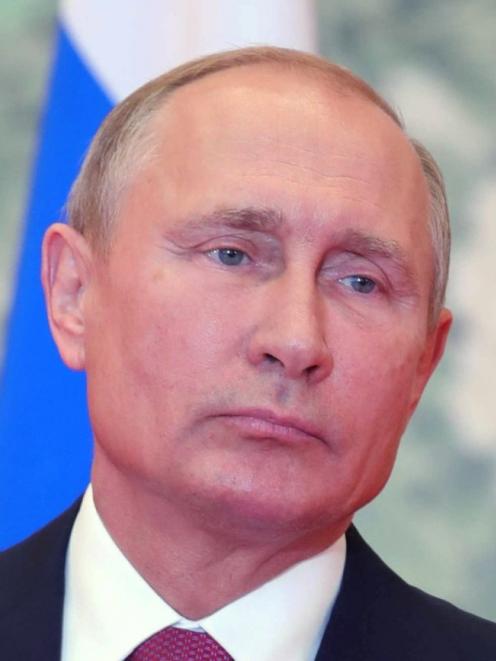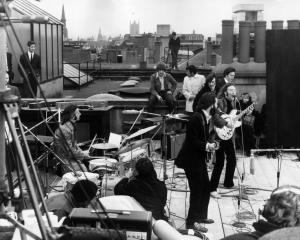
Like the male gaze, football fans have eyes for just one thing. Nothing can turn them away from the pitch. When Fifa announced it was handing the World Cup first to kleptomaniac murderers who run Russia and then to the overseers of a serf economy in Qatar, even cynics thought Zurich's masters of corruption had finally gone too far. Surely the world wouldn't stand for it.
Read the sporting press or examine your own conscience and you learn the world will not just stand for it but stand to attention and salute it.
I am not claiming moral superiority. I will finish this righteous piece then purr over reports of how Marcus Rashford is coming into his prime at exactly the right moment. The looting of the Russian economy, the downing of civilian airliners, the murder of journalists, the sheer brazenness of Fifa's decision to stage a World Cup in a country that has invaded and occupied another country are powerful arguments to boycott the circus. But their power is nothing before the power of the fans' gaze that fixes your eyes on your team.
It's not that politics and sport don't mix - Putin wants the World Cup to boost his political prestige, Qatar wants to get one up on Saudi Arabia. Rather, fans and politics are the hopeless combination. The battle is always unequal. If you wonder how you would have reacted to Hitler's 1936 Olympics, look at how you are reacting to Putin's 2018 World Cup and learn something about yourself and the nature of sport.
Fifa's stance on racism is as notorious as it is contemptible.
I expect the swine will get away with it: they usually do. But it is worth thinking about why the fix might not work for once. By choosing Russia as the host country, Fifa has put racism directly in the fans' line of sight and we may not be able to miss it.
When Danny Rose described how he had told his family not to travel to Russia, he was not revealing that he had asked them to stay at home as a protest against the invasion of Ukraine. The practical threat of racism, both to players and fans, was his sole concern. He ``didn't want to be worrying, when I'm trying to prepare for games, for my family's safety''.
Equally, when Gareth Southgate discussed whether players should walk off the pitch, he was not thinking about the England back four taking a quixotic stand against homophobia, but how much racist chanting his players could be expected to take before playing on became impossible.
Fifa has wound up its anti-racism task force, saying its mission was accomplished before it had even begun. When Russian fans directed monkey chants at Paul Pogba, it fined the Russian Football Association 22,000, a sum so pathetic no aspiring host nation would dare offer it to a Fifa delegate.
A report by researchers at the human rights consultancy shows that Fifa would not disclose whether it sought a meaningful commitment to human rights from Russia when it negotiated terms with Putin's administrators. In theory, they were obliged to set high standards. After the Sepp Blatter scandal, Fifa tried to salvage the remnants of its reputation by committing to ``social responsibility, human rights, environmental protection and gender equality''. Its president, Gianni Infantino, even has a specific responsibility to promote human rights.
The record shows that Fifa does nothing of the sort. It argued to a Swiss court in 2017 that Dutch and Bangladeshi trade unions could not ask it to compel the organisers of Qatar's World Cup to protect migrant workers dying on the sites of new stadiums. Fifa is in the commercial business of selling football, its argument ran. The internal affairs of Qatar were its concern. You might think from reading Fifa's ethical codes it had a particular responsibility to protect the safety and security not just of workers, but of players, journalists and fans visiting World Cups. That would be to interfere in the internal affairs of a sovereign state. How could it meddle when it was just a business like any other? Fifa offered us a modern version of the old ``you can't mix sport and politics'' excuse.
Fifa's demands on states show its defence is insultingly disingenuous. If Fifa is a business, it seems to me that it is a global corporation that demands favours from national governments or a mafia running a protection racket. Host nations must protect its intellectual property and punish miscreants who infringe it, establish exclusion zones around stadiums where its sponsors' rights are supreme and allow unrestricted access to Fifa delegates and commercial partners. In other words, countries must change their civil, criminal and immigration law for the duration of a tournament.
In these circumstances, why cannot Fifa make it a condition of hosting the World Cup that LGBT fans are not harried by the police? Or visiting journalists aren't arrested?
Sashy Nathan, the legal researcher who compiled the report, said the hardest questions are likely to come from European teams. Russian racists tend to leave black African teams alone. It's the sight of black and white players on the same side that infuriates them and provokes them to isolate and intimidate their targets.
Rose's interview was a mournful affair. His father was mortified, he said. ``I could hear it in his voice. He said he may never get a chance again to come and watch me in a World Cup.'' That was just how it is. ``Somehow Russia got the World Cup and we have to get on with it. Whatever we do here isn't going to change what is happening around the world.''
Probably not, but we shall see. Russian abuse will be directly in the fans' line of vision. Our gaze will not be able to shift from it. Blind though we are to everything outside the game, we may not be able to escape politics when it is staring us in the face.
Nick Cohen is an Observer columnist.











